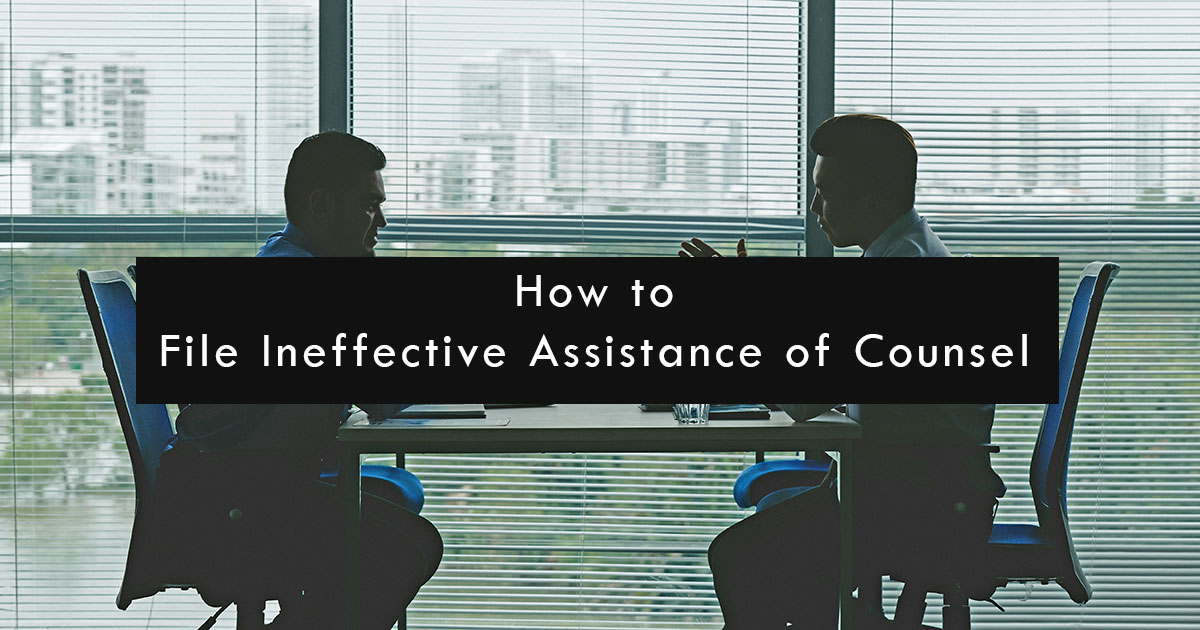Navigating the complexities of the legal system can be daunting, especially when you feel that your legal representation was inadequate. “Ineffective assistance of counsel” is a claim raised by a defendant in a criminal case or a party in other legal proceedings, indicating that their attorney’s performance fell below an acceptable standard, potentially affecting the outcome of the case. In this comprehensive guide, we’ll walk you through the steps to file a claim for ineffective assistance of counsel, ensuring your rights are protected.
Understanding Ineffective Assistance of Counsel
Before filing a claim, it’s crucial to understand what constitutes ineffective assistance of counsel. This term is often associated with the Sixth Amendment of the U.S. Constitution, which guarantees the right to competent legal representation. Key factors include:
- Inadequate Representation: Poor performance by your attorney that includes errors, lack of preparation, or failure to provide competent legal advice.
- Impact on the Outcome: Evidence that the attorney’s performance adversely affected the outcome of your case.
A Step-by-Step Guide to Filing an Ineffective Assistance of Counsel
Step 1: Documenting Your Case
The first step in filing a claim is to thoroughly document instances where you believe your attorney failed to provide competent representation. This may include:
- Instances of missed deadlines
- Failure to present key evidence or call witnesses
- Lack of communication or disregard for your concerns
Step 2: Seeking Legal Advice
Consult with a legal expert specializing in ineffective assistance of counsel claims. This professional can provide an objective assessment of your case and guide you through the process.
Step 3: Filing a Post-Conviction Relief Motion
If your case involves a criminal conviction, you’ll typically need to file a motion for post-conviction relief. This motion should detail how your attorney’s performance impacted your case and why a new trial or sentence is warranted.
Step 4: Presenting Evidence
You will need to present evidence supporting your claim. This could include affidavits, legal documents, or correspondence that demonstrates your attorney’s incompetence or negligence.
Step 5: Attending a Hearing
Most ineffective assistance of counsel claims will require a hearing, where you can present your case. Be prepared to articulate clearly how your attorney’s actions or inactions affected your case.
Conclusion
Filing for ineffective assistance of counsel is a serious step and requires careful consideration and preparation. Understanding your rights and the legal process is paramount. If you believe you’ve been a victim of inadequate legal representation, taking these steps can help you seek justice and potentially overturn an unjust legal outcome.
Ineffective Assistance of Counsel FAQs
Does ineffective assistance of counsel apply in civil cases?
Ineffective assistance of counsel is a legal claim primarily associated with criminal law, particularly under the Sixth Amendment of the U.S. Constitution, which guarantees the right to competent legal representation in criminal prosecutions. This concept is not typically applied in civil cases. Civil cases do not have the same constitutional guarantee of counsel, and the standards for legal representation differ from those in criminal proceedings. In civil matters, issues with legal representation might be addressed through different legal means, such as malpractice claims.
Can a client waive ineffective assistance of counsel?
Generally, a client cannot waive ineffective assistance of counsel in advance. This is because the right to effective assistance of counsel is a fundamental right that ensures a fair trial. Waiving this right in advance could undermine the fairness and integrity of the legal process. However, specific circumstances might allow for limited waivers, usually under strict legal scrutiny and with appropriate safeguards. It’s important to consult with a legal expert for advice tailored to specific situations and jurisdictions.
Can you plead ineffective assistance of counsel with standby counsel?
Pleading ineffective assistance of counsel when standby counsel is involved can be complex. Standby counsel is appointed to assist a defendant who has chosen to represent themselves. The role of standby counsel is usually limited, and they are not fully in charge of the defense strategy. Therefore, asserting ineffective assistance claims in this context might be challenging, as the primary responsibility for the defense lies with the defendant. Each case’s specifics and the jurisdiction’s laws would significantly influence such a claim’s viability. Legal advice from a qualified attorney would be essential in these situations.









Leave a Reply